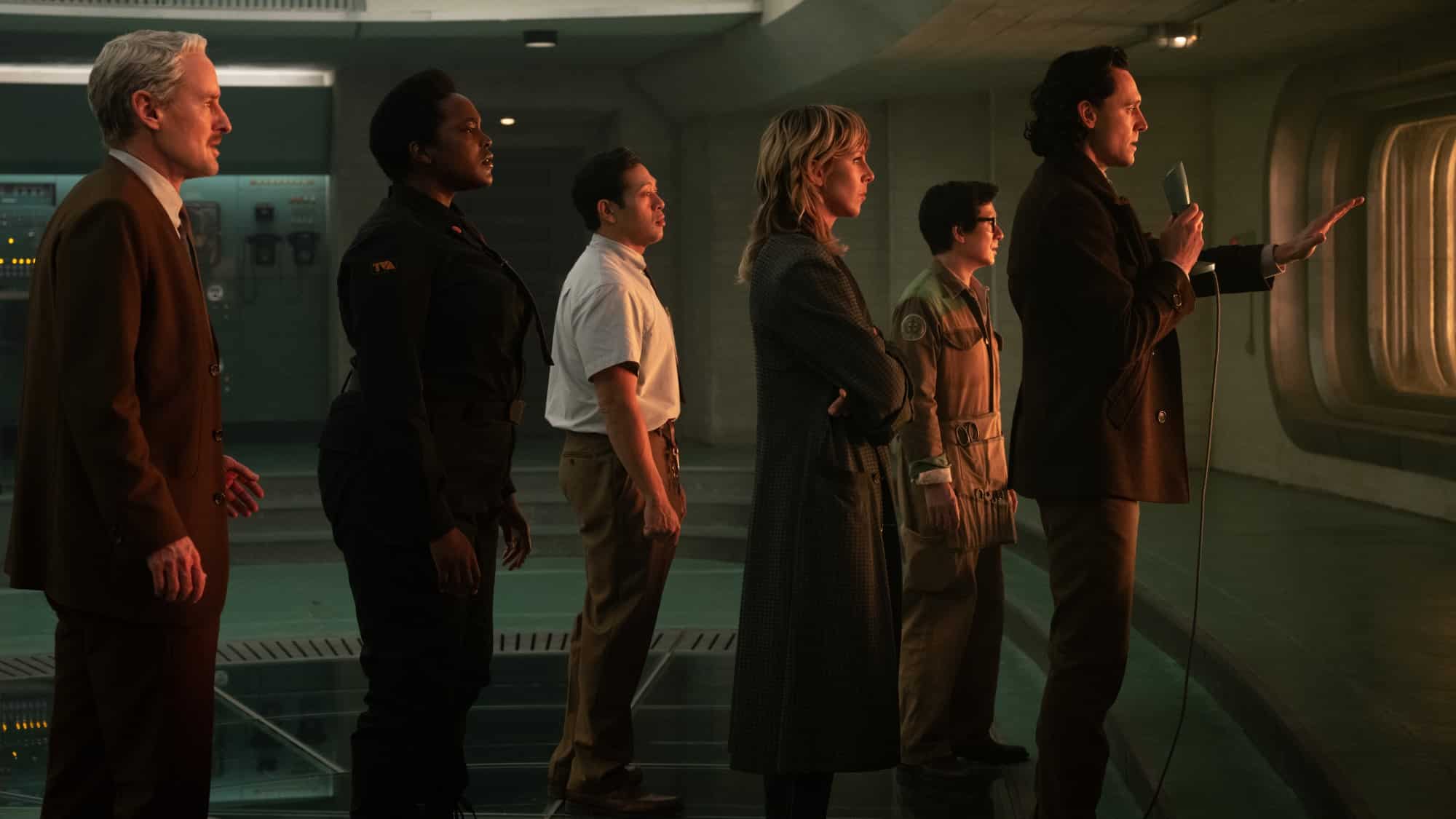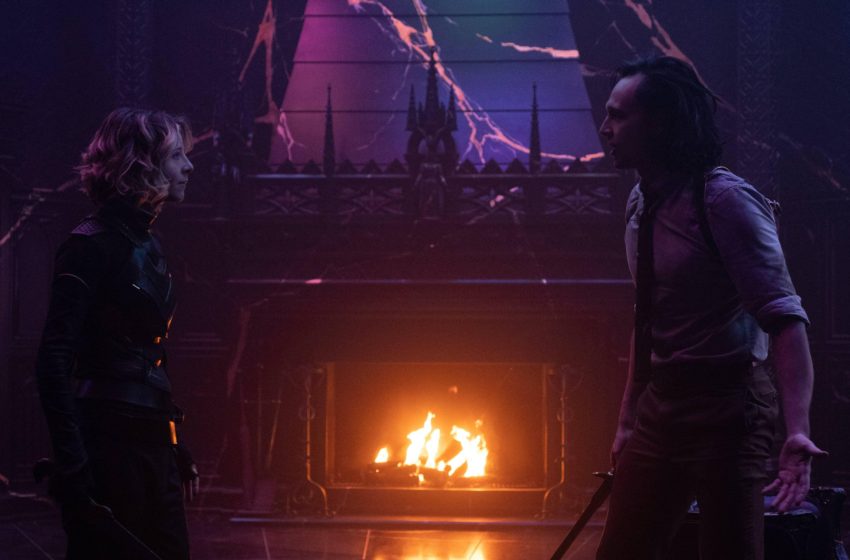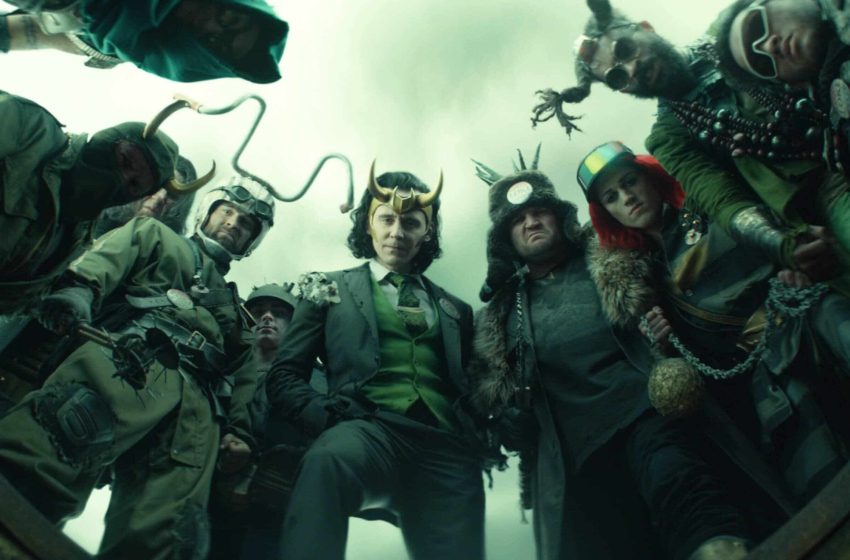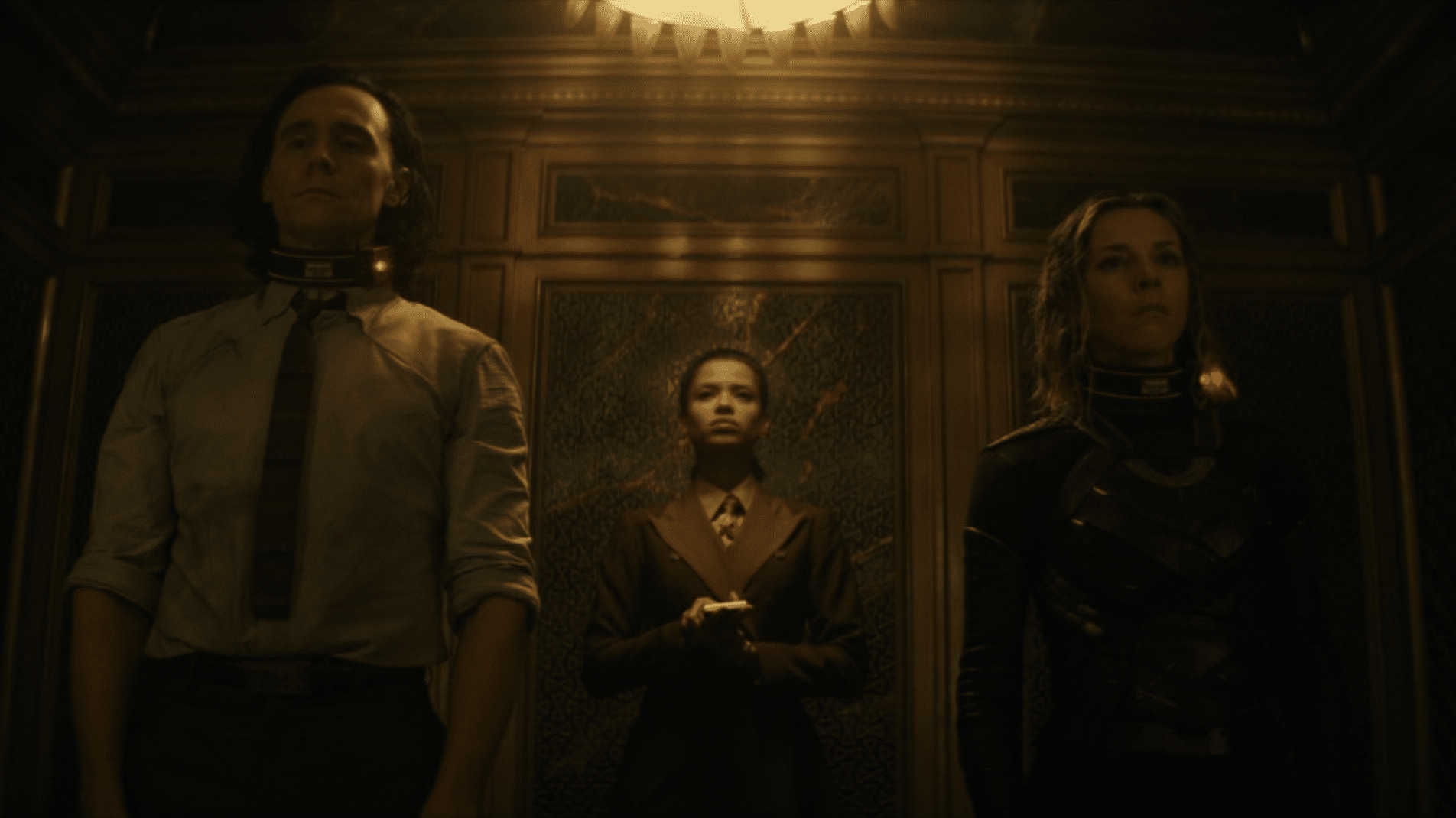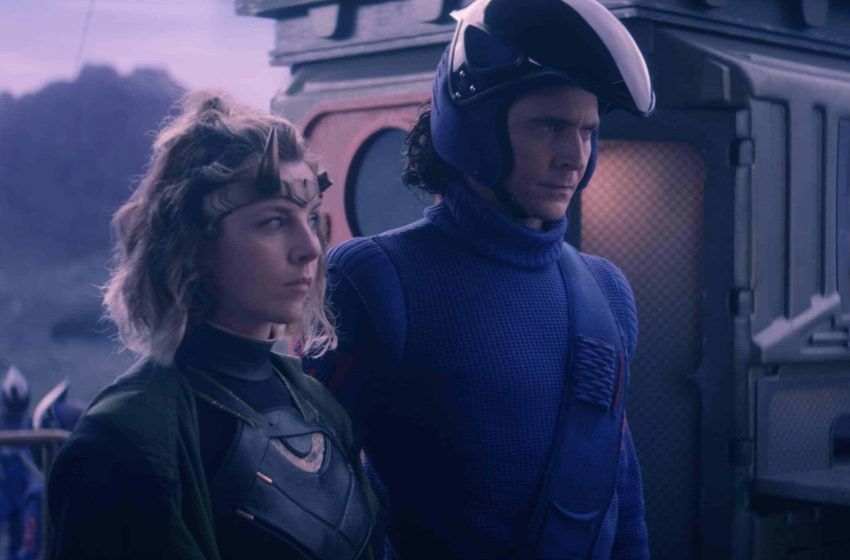Note: This essay contains spoilers for the final episode of Disney+’s Loki season 2.
Last week on the season (and perhaps series) finale of Loki, the God of Stories saved the entire multiverse with his bare hands.
Weirdly, that’s not a metaphor. After trying for hundreds of years (also not a metaphor) to prevent the destruction of the multiversal loom and with it every possible timeline, Loki pulled on his big boy pants, strode out of the TVA and onto the bridge being bombarded with massive amounts of temporal radiation — Sure, it ripped everyone else to shreds, and they were wearing protective suits; but Loki is super-determined, you guys! — then literally reached out and grabbed handfuls of strands of the multiverse, pulled them up a staircase to Kang’s palace at the end of time, sat down on Kang’s throne and gathered all the strands together around him, transforming them into a massive multiversal version of Yggdrasil the World Tree, pulsing with Loki-green energy.
That might be the most amazing sentence that I have ever had the pleasure of writing. It was definitely more fun to put together than it was to try to understand the finale of Loki. A person can just reach out and grab a whole multiverse in his hand? The end of time can be reached by a staircase? Loki is going to spend all eternity staring out from the inside of a tree? What?
For me, maybe the saddest and strangest choice of all was the decision to leave Loki the grim messiah that season 2 had made of him. The idea of putting the God of Stories at the heart of the multiverse is actually kind of a genius concept. Bravo to the writing team for that wonderful idea.
But this God of Stories has become so somber, we don’t walk away from the finale with any of the joy or delight we should when talking about Loki. Don’t get me wrong, I’m glad we got to see him in his big-horned green number again, but it was just a second.

Basically, it feels like they just imprisoned one of Marvel’s most fun and beloved characters in a banyan and then forced him to become the Three-Eyed Raven. That’s right, they just Branned Loki.
The concept of a multiversal Yggdrasil does beg some potentially interesting questions, though. Like, does this new reality mean there’s now a safe way to travel between dimensions? In the same way Asgardians travel along Ygg-616’s branches to the Nine Realms, has Loki just created a means for characters to travel Ygg-MCM’s branches to other dimensions without doing harm to the multiverse? Forget about generating incursions, baby. Now we ride the vines! Or the veins!
And speaking of incursions, what does the Multiverse-as-Tree-of-Loki mean for Marvel’s bigger storyline? Does the Hickmanesque Secret War-between-dimensions, as hinted at in the “Let’s Show You Just How Cool Jim Halpert would be as Reed Richards so that We Can Murder Him in front of You” section of Doctor Strange in the Multiverse of Madness, still make sense?
Perhaps this signals an adjustment to that idea, incursions as some kind of cosmic rot to the multiversal tree? But shouldn’t the Loki-sap now pulsing through Ygg-MCM have taken care of that? If the multiverse is still rotting away, what was the point of all this? And does it mean our pal Loki will soon be able to come back out and play?
I love it when a comics universe gets meta. Many of DC Comics’ big events often end up offering this really fascinating internal commentary in which the characters criticize the writing choices of the last iteration of the DC Universe. Each new event becomes a kind of self-stated course correction.
That doesn’t usually happen in Marvel Comics, because they don’t reboot their universe. But it’s hard not to see the ending of Loki season 2, and really the season as a whole, in a meta way. Having seemingly destroyed He-Who-Remains and his Sacred Timeline in season 1, season 2 has been all about preserving the diversity of timelines instead. In the finale, Loki is confronted with the fact that maybe there can only be the Sacred Timeline. Then, despite that seeming pretty clearly definitely the case, he just ignores all that and saves the multiverse with his bare hands. (I really, really love saying that.)

Meanwhile, in the real world, Marvel has been contending with a lack of real fan enthusiasm around the Kang storyline, lower box office grosses, and Kang actor Jonathan Majors accused by multiple women of physical abuse. All of which is to say, Marvel’s own Sacred Timeline doesn’t look so good.
By potentially removing the threat of Kang — the TVA acknowledges there are still Kangs out there, but they’re being handled — it could be that Loki is Marvel writ green, choosing to embrace new possibilities rather than continuing to idolize its endless multiphase plan. The fact that the finale didn’t do a post-credit scene, one of Marvel’s ever-present storytelling devices, also speaks to the possibility of the company trying to do something new.
OK, yes, “something new” so far involves bringing on board the tremendous Ke Huy Quan as Ouroboros in a role that seemed chock full of potential and then giving him nothing to do in the finale but open up a single box of TVA guidebooks; leaving Gugu Mbatha-Raw’s Renslayer with just a single moment in the entire episode, waking up in a field (WTF?); and having Loki toss aside all of the laws of physics and reality that have previously been established in the MCU so that we can get the (admittedly cool) visual of turning the cosmic loom on its side so that it looks like a tree.
But still, though: He did do it with his bare hands.
MORE LOKI COVERAGE HERE:
The Absolute Mess of Loki Season 2, by Adam Reck

Jim McDermott
Jim McDermott is a freelance writer in New York and also works part time as an imaginary tiger.

